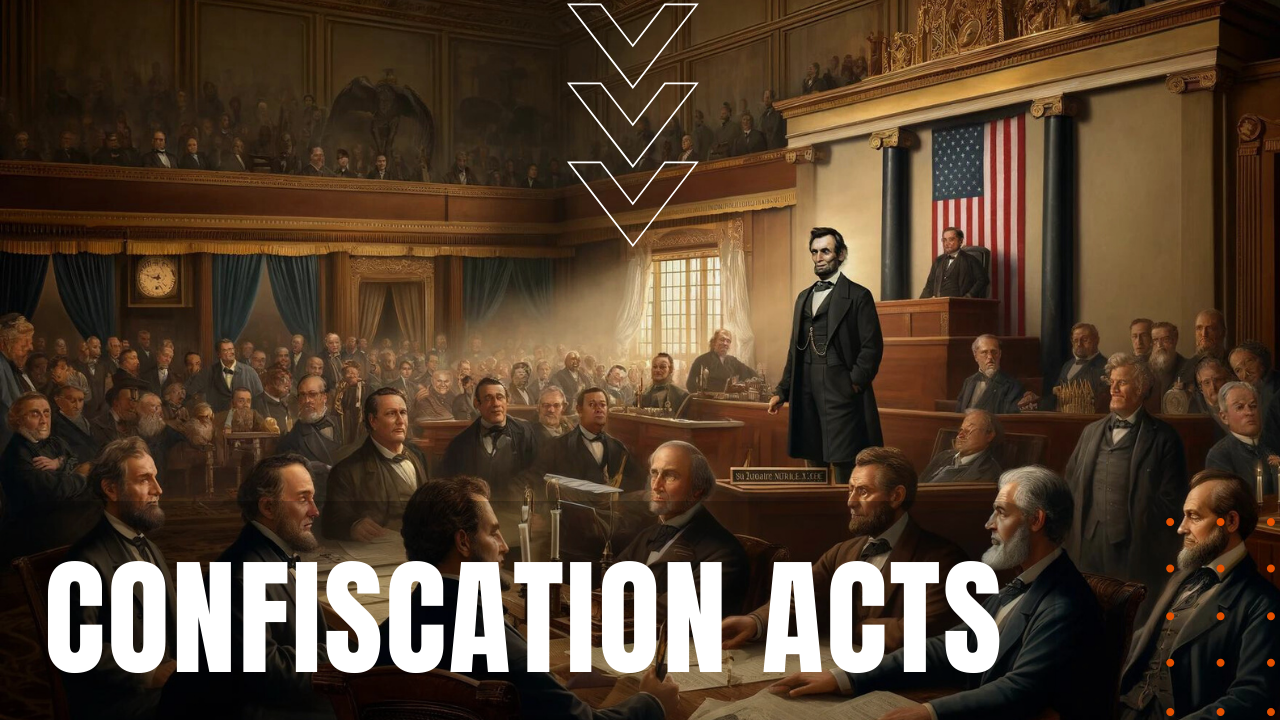The Confiscation Acts

Following the Union’s bitter defeat at the First Battle of Bull Run, July 21st, 1861, reports of thousands of slaves at the Manassas battlefield, working as laborers and servants to Rebel combatants, jolted Congress and most northerners into the realization that the Civil War was fading from an anticipated swift action, to a long and bloody standoff. Given the severity of the Confederate’s lopsided slave labor advantage, in the first summer of the Civil War, President Abraham Lincoln called the 37th U.S. Congress into an emergency session on the Fourth of July, 1861, quickly passing the First Confiscation Act that authorized the federal government to seize Confederate property—including slaves—of those directly participating in rebellion.
Lacking in Muscle
After Lincoln signed the act into law, it soon became apparent that the First Confiscation Act lacked any significant teeth, leading northern lawmakers to perceive the bill as a restatement of the international laws authorizing the seizure of property directly used to aid belligerents during a war. As a result, under mounting public pressure to draft a more vigorous bill, during the second session of the 37th Congress in December of 1861, Republican Senator Lyman Trumbull of Illinois took the floor to introduce a bill that envisioned the seizure of all rebel property used to support their war effort, even if the rebel supporter was thousands of miles away from the battlefield.
An Ideological Standoff
The bill quickly bogged down into an ideological standoff, exposing deep-seated divisions over the social role of property and the extent of sovereign power over private property in American law and the U.S. Constitution. Leading the fight for a repressive bill was a Trumbull-led coalition including Charles Sumner of Massachusetts and Benjamin Wade of Ohio in the Senate and George Julian of Indiana in the House, while Republican senator Orville Browning of Illinois led the conservative side of the months-long debate, which proved to be a sustained and quite remarkable standoff in the midst of a Civil War.
Moderate Prevail
Finally, moderates led by John Sherman of Ohio, Daniel Clark of New Hampshire and Henry Wilson of Massachusetts in the Senate and Thomas Eliot of Massachusetts in the House reworked the bill by providing a much greater role for the judiciary than the radicals had wanted. Signed by President Lincoln on July 17th, 1862, after first demanding that Congress pass an “explanatory resolution” to the bill, the Confiscation Acts and Lincoln’s subsequent Emancipation Proclamation not only targeted the economic interests of the Southern states, but delivered a pathway for the abolition of slavery in America, making the Confiscation Acts, an ideological compromise during a nation’s war with itself.
